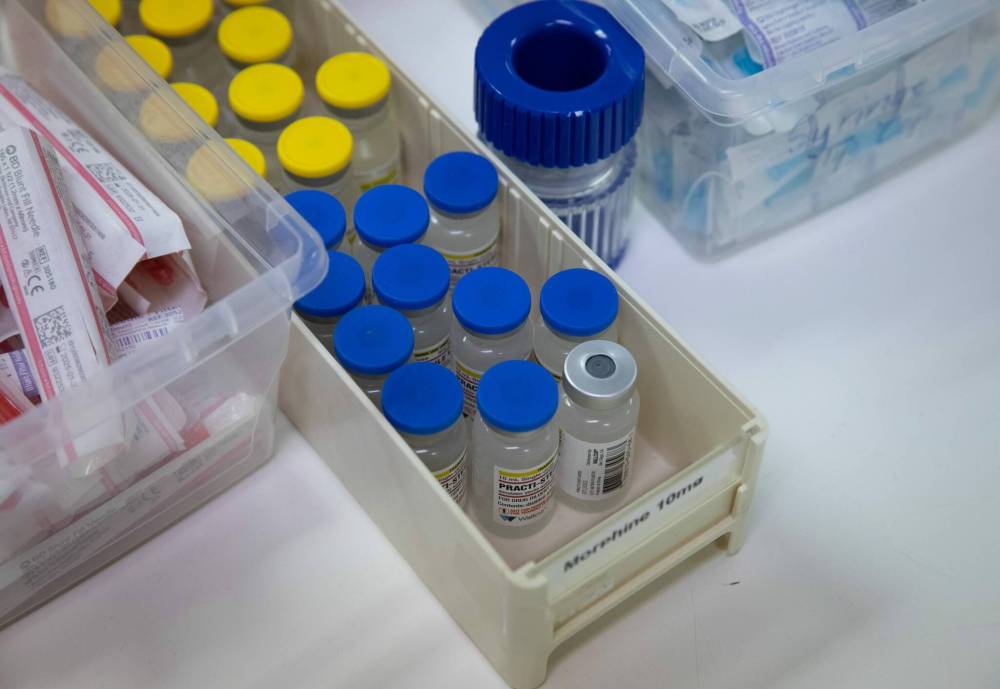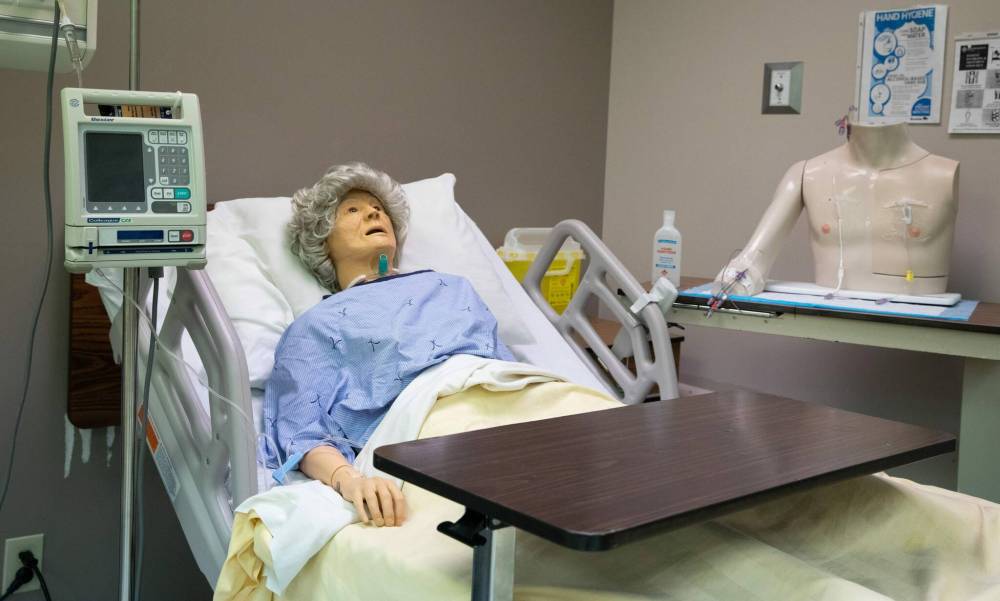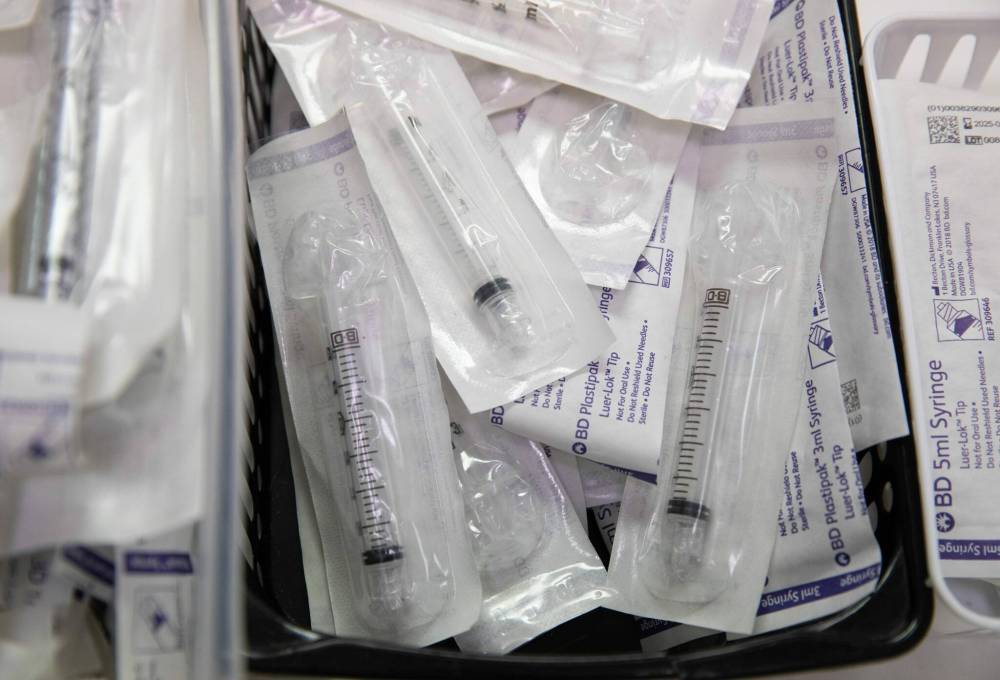Satellite campus for rural students adds to nursing ranks
Advertisement
Read this article for free:
or
Already have an account? Log in here »
To continue reading, please subscribe:
Monthly Digital Subscription
$19 $0 for the first 4 weeks*
- Enjoy unlimited reading on winnipegfreepress.com
- Read the E-Edition, our digital replica newspaper
- Access News Break, our award-winning app
- Play interactive puzzles
*No charge for four weeks then billed as $19 plus GST every four weeks. Offer only available to new and qualified returning subscribers. Cancel any time.
Read unlimited articles for free today:
or
Already have an account? Log in here »
Hey there, time traveller!
This article was published 17/11/2022 (768 days ago), so information in it may no longer be current.
The rollout of a unique rural satellite campus on which 25 nurses-in-training are studying in southeastern Manitoba is being celebrated as a template to address the chronic shortage of practitioners across the province.
Assiniboine Community College, Providence University College and Southern Health marked the official launch of a new so-called “rural rotating site” earlier this month.
Providence is hosting a cohort enrolled in its post-secondary partner’s practical nursing diploma.

Artificial morphine at Assiniboine Community College’s nursing lab (Jessica Lee / Winnipeg Free Press)
While the future nurses are registered at Assiniboine, they attend courses and participate in student life — including secular and Christian programs and services — in Otterburne, located about 60 kilometres south of Winnipeg.
The inaugural intake for the two-year course opened solely to southern region residents in the spring.
“I’m hoping it will retain more nurses to the area,” said Brandy Cummings, a nurse instructor at the new site. “There is an extreme nursing shortage and… a lot of people who have come into work in rural areas have left because they’ve (found jobs in the city).”
Kathryn Ayers said the campus — a 40-minute drive from her home near Sarto, versus a 90-minute commute to Winnipeg — has made pursuing the profession feasible.
“I’ve been working in public health for the last six years and through the pandemic, I was super impressed with the nurses,” Ayers said, adding she has immense respect for professionals in the field and hopes to work at a rural facility upon graduation.
Since late 2021, the Tories have earmarked more than $30 million to increase the total number of post-secondary student nursing seats across the province to support recruitment for the health-care sector.
This time last year, there were roughly 800 seats at six publicly-funded schools annually.
The Stefanson government’s multi-year plan aims to add 400 more.
Nearly three-quarters of those new spots are accounted for with recent or imminent expansion announcements at Assiniboine, Université de Saint-Boniface, Red River College Polytechnic, Brandon University, University College of the North, and the University of Manitoba.

A mannequin at Assiniboine Community College’s nursing lab (Jessica Lee / Winnipeg Free Press)
Being home to Manitoba’s largest nursing program, U of M is making significant adjustments to address the critical nursing shortage. The training college has transitioned from a two-term to a three-term delivery model and is introducing a third annual intake — the first of which will welcome students in May — so it has the capacity to graduate 120 more nurses every year.
Dean Netha Dyck, a registered nurse, said in a statement the overwhelming majority of students are from Winnipeg, but about 13 per cent come from rural areas.
Given some people are place-bound and cannot leave home to pursue nursing, Assiniboine president Mark Frison said rural rotating sites “could be their shot to fulfil their dream.”
The institution’s permanent nursing education sites are in Dauphin, Brandon, Winnipeg and Portage la Prairie. Throughout the 2022-23 academic year it is making instruction temporarily available — via additional provincial funding — in Virden, Otterburne, Arborg, Morden, Berens River and Norway House Cree Nation.
“Anything that can bring (private nurse) agency-use down brings the whole cost of the system down and then the stability of the workforce up,” Frison said, noting the college is in frequent discussions with regional health administrators to learn about their staffing needs.
Providence provost Nicholas Greco said the faith-based school is excited to be a part of a collaborative project to graduate more nurses in order to “contribute to the common good of the province of Manitoba.”
The Manitoba Nurses Union has not shied away from being critical of the province’s plan to address the nursing shortage in recent years.
Union leader Darlene Jackson, however, said she supports the satellite programs and she is in favour of further expanding such initiatives.

Syringes at Assiniboine Community College’s nursing lab (Jessica Lee / Winnipeg Free Press)
Jackson’s career spanned more than 40 years in northern Manitoba — a feat she said would not have been possible had she not been able to enroll in a training pilot close to her home in The Pas, citing the fact she was a young mother at the time.
“It is so beneficial to have (local nurses) who understand the culture, know the area and just continue to work there. I can’t say enough good things about it,” she said, adding numerous communities north of the 53rd parallel are prime candidates for programs like the one that got underway in Otterburne this fall.
In a statement, Advanced Education Minister Jon Reyes touted Assiniboine’s permanent and ruling rotating site expansions as moves that will allow more students to become certified in a high-demand occupation.
maggie.macintosh@freepress.mb.ca
Twitter: @macintoshmaggie

Maggie Macintosh
Reporter
Maggie Macintosh reports on education for the Winnipeg Free Press. Funding for the Free Press education reporter comes from the Government of Canada through the Local Journalism Initiative.
Our newsroom depends on a growing audience of readers to power our journalism. If you are not a paid reader, please consider becoming a subscriber.
Our newsroom depends on its audience of readers to power our journalism. Thank you for your support.
History
Updated on Friday, November 18, 2022 9:09 AM CST: Adds photos






